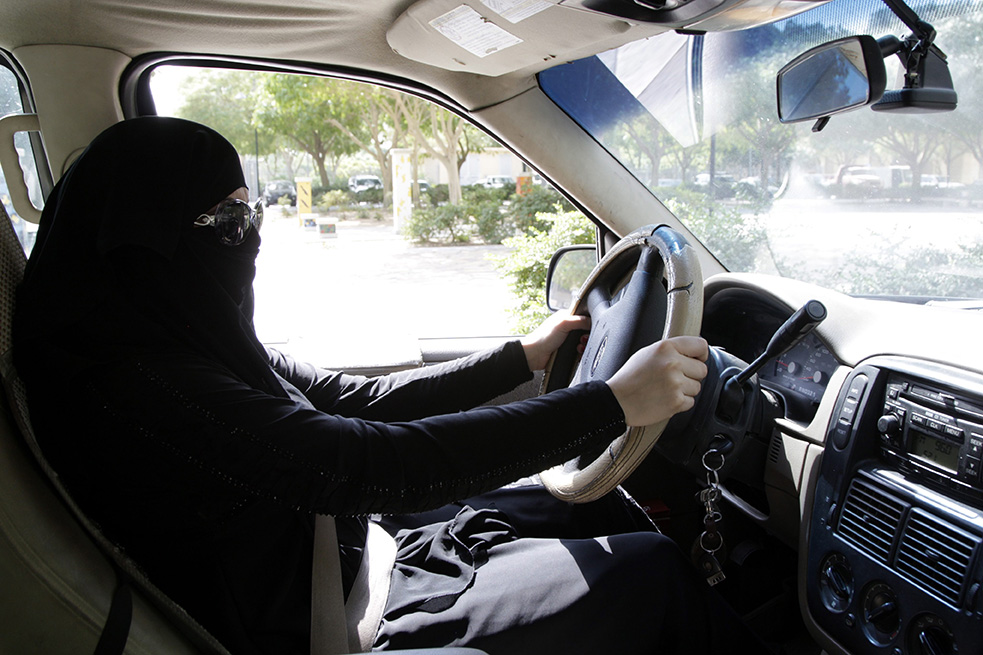Female taxi drivers in Saudi Arabia
January 11, 2018 | Expert Insights

Two popular transportation companies, Uber and Careem, in Saudi Arabia have announced that they will be hiring female chauffeurs.
In June 2018, the current ban on female drivers in the Kingdom will officially be lifted. The region has committed itself to introducing progressive measures in the recent months.
Background
Saudi Arabia is considered one of the most oppressive countries for women. It has been reported that Saudi Arabian women must have male guardians at all times to make critical decisions on their behalf. This has been unofficially imposed for several years. In April 2017, Saudi Arabia’s King Salman issued an order to all government agencies that women should not be denied access to government services because they do not have a male guardian’s consent unless specific rules require a male guardian. Currently, women can’t marry, divorce, travel, open a bank account, get a job or have elective surgery without permission from their male guardians.
Saudi Arabian women have also not been allowed to drive by the law. It is the only country in the world to impose such a law. In 2014, Saudi activist, Lujain Al-Hathlool, filmed herself driving in the United Arab Emirates. She Tweeted the video and was detained for 73 days as a result of it. At the time, the incident was covered by the global media and received a lot of attention. In 2017, the Kingdom of Saudi Arabia has introduced a number of new reforms aimed at easing regulations placed against women. This has been largely attributed to Crown Prince Mohammad bin Salman. In 2016, he detailed Saudi Vision 2030 that introduced his agenda of modernizing the nation. It was also a plan to reduce Saudi Arabia's dependence on oil, diversify its economy, and develop public service sectors such as health, education, infrastructure, recreation, and tourism. In September 2017, Saudi Arabia lifted its ban on female drivers in the country. In the same month, Saudi Arabia also allowed women into the national stadium. The stadium was hosting a number of concerts and performances to mark the 87th anniversary of the Kingdom’s founding. A month later, the nation introduced a decree noting that the region will allow women to enter three stadiums.
Uber, an American technology company, that offers ride sharing services, is also one of the most successful companies in the world. Careem is a transportation network company based in Dubai, with operations in 53 cities in the Middle East, North Africa, and South Asia. The company is valued at around $1 billion as of 2017.
Analysis
The ban of women driving in the Kingdom will effectively be lifted by June 2018. Ahead of the event, two transportation services in the region, Uber and Careem, have both announced that they will be hiring female chauffeurs for their companies.
Due to the ban on the female drivers, much of the business for Uber and Careem in Saudi Arabia was predominantly women. 80% of all those who used Uber and 70% of those who used Careem were women. The lifting of the ban could potentially affect the demographic. In many ways during the ban, women were highly dependent on these apps as they did not have their own individual means of traveling around the region.
A report by CNN noted that all the current drivers employed by these apps are men. They are all mostly Saudi nationals themselves and the cars are privately owned. After the decree was announced, Careem began conducting 90 minute training sessions for women in major cities like Riyadh, Jeddah and Al Khobar. These sessions initially targeted women working within the company (the one employed in administrative capacity). They have been briefed on road rules, customer service and even basic notes on how the application can be used. "From the first moment, we announced our willingness to welcome the ladies to work on our platform," says Abdullah Elyas, co-founder and chief privacy officer at Careem, over email. He also confirmed that thousands of women from the region have already contacted the company with the interest of joining as drivers.
Uber, meanwhile, has announced plans to open "one-stop-shop" facilities dedicated to recruiting future female drivers, or "partners", as the company calls them. These Green Light Hubs already exist in the country to serve male employees.
"We will partner up with necessary stakeholders to facilitate the paperwork, training access, and access to vehicles, including access to driving schools run by third party partners," says Zeid Hreish, Uber's general manager in Saudi Arabia.
In October 2017, the country’s heir apparent, Prince Salman vowed to bring moderate Islam back to Saudi Arabia and has publicly rejected extreme conservatism.
“Economic transformation is important but equally essential is social transformation,” said one of the country’s leading businessmen. “You cannot achieve one without the other. The speed of social transformation is key. It has to be manageable.”
Assessment
Our assessment is that the latest development is in line with Prince Salman’s vision of reverting Saudi Arabia into a moderate nation. Its conservative laws have incurred international condemnation in the past. We believe that, the Islamic world is now under some pressure to take progressive steps that will ensure social transformation. However, it should also be noted that such a move by the Crown Prince will anger the nation’s staunch conservatives.








Comments